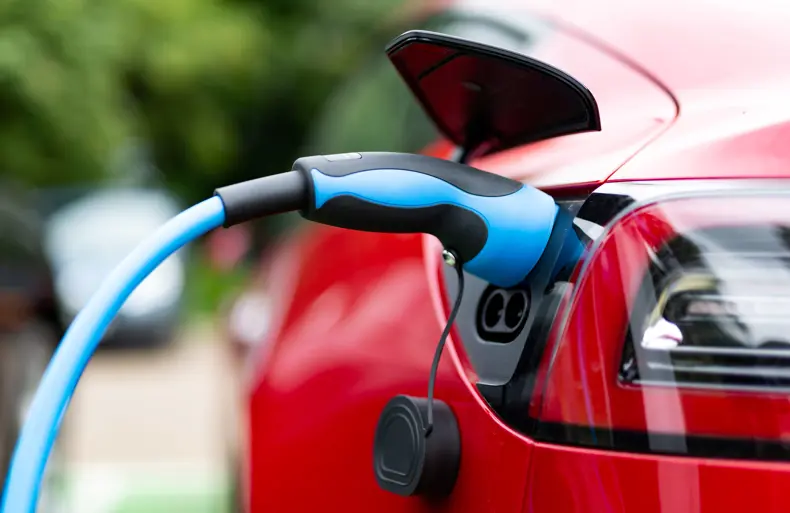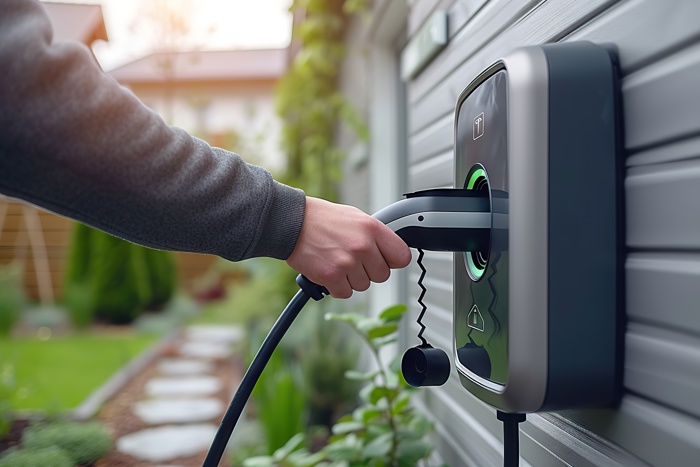Blog | Valuation | Alternative | Z 2024 All June | The Environment
Electric Vehicle Charging Points – an opportune time to invest in this sustainable venture?

Do you own an Electric Vehicle? I haven’t yet stepped into the world of electric cars however I often see charging points whilst stopping for a Starbucks on long inspections and it got me thinking about how many there are and how it all works.
From my research it is clear many people are ahead of the game with 1,650,000 plugin cars and over 1,000,000 battery-electric cars now on UK roads.
How do we charge them all? There are currently around 300,000 private EV charge points and 57,300 public electric charging points in the UK however this is not sufficient to meet the growing needs of EV owners. It is not only the number of available public EV chargers that we need to consider, but also the type of charger and how appropriate it is to its location. For example, home charging points are usually between 3.7kw and 7kw which could fully charge a car within 8-16 hours. This works perfectly while you are getting your beauty sleep, however it would be one very long cup of coffee. For commercial public chargers, they are known as ‘fast (22kW), rapid (50kW) and ultra-rapid (350kW)’ which can fully charge a car between 20 mins and 3 hours. By having the multiple types it also allows providers to charge more for the higher speed, and gives consumers a chance to pay less if they are not in a rush.

I have often used websites such as ‘YourParkingSpace’ to effectively rent a space on someone’s driveway when heading over to Anfield (no judgement please). However, taking this a step further I have heard that people are now renting out their home EV charging point to earn themselves a healthy income stream. This is giving people a chance to earn an income on a small scale, but what about the larger commercial picture?
Public charging points which represent only 16% of current supply are not only on Petrol Station forecourts but are often found in Supermarkets, Retail Parks and Retail Parades. Clearly there is still not enough and therefore does this gap in the market present a substantial opportunity for real estate owners and investors to step in and bridge the shortfall?
Several key players are already capitalising on this demand. Shell Re-charge leads the charge with 8,426 points, followed by Pod Point with 4,602, and Connect Kerb with 3,710. Other significant suppliers include BP Pulse, Char.gy, Charge Place Scotland, Source London, Sure Charge, Fuuse, Blink, Instavolt, and Mer, each offering over 1,000 charge points across the UK. This competitive landscape underscores the potential for growth and profitability in the EV charging sector.
For commercial real estate (CRE) landlords, the EV revolution is not just a trend but a strategic opportunity. We work with a number of funds and have seen up to 20% of properties within these portfolios are equipped with or are in the process of installing EV chargers. This adoption is not only a response to the growing demand but also a proactive measure to enhance property value. Providers are increasingly willing to cover the installation costs of EV chargers, offering landlords a base rent and a percentage of turnover rent that kicks in once the base rent is exceeded. This model minimises the financial burden on landlords while ensuring a steady income stream.

Investing in EV charging points offers multiple benefits for property owners. It increases footfall to their assets or developments, as more people visit to charge their vehicles. This can lead to increased spending and revenue in the surrounding area (time for a Starbucks whilst you wait). The presence of charging points also encourages longer dwell times due to charging times, which can translate into higher revenue for businesses located near the charging stations. Additionally, the extra rental income from hosting charging points can lead to an increase in the overall value of the property.
While the benefits are clear, potential challenges such as electricity capacity and wholesale costs and must be considered, as they will not be appropriate or possible in all schemes. However, these have not yet posed serious concerns. The lack of EV charging points in the UK represents a significant investment opportunity for real estate owners and investors. By capitalising on this underserved market, landlords can not only contribute to the nation's green transportation goals but also reap financial rewards. As the EV market continues to grow, the demand for charging infrastructure will only increase, could this mean it is the opportune time to invest in this forward-looking and sustainable venture?
Related Insights

Terrifying Statistics or Development Opportunities???
Chronic under-delivery of new housing will likely continue to act as a support for pricing in the face of consistent demand, ...

Leasehold, Commonhold & Rental Reforms - key changes & their potential impact
The property landscape in England and Wales is undergoing significant changes, with the introduction of new legislation aimed...

A graduate's insight into the 2024 Alternative Market
In the dynamic world of real estate investment, the alternative sector continues to carve out its unique niche, offering a di...

Podcast: With £1billion of sales at auction three Allsop experts say how they would invest £10m in 2025
Want to know more or would simply like some advice? We hope you find this podcast useful. If you want to know more about topi...